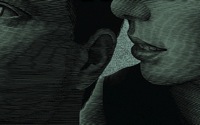Difference between revisions of "Inhibition"
(Created page with 'File:lighterstill.jpgright|frame *[http://en.wikipedia.org/wiki/14th_century 14th Century] ==Definitions== *1a : the act of inhibiting ...') |
m (Text replacement - "http://" to "https://") |
||
| Line 1: | Line 1: | ||
[[File:lighterstill.jpg]][[File:Purchase_of_intimacy.jpg|right|frame]] | [[File:lighterstill.jpg]][[File:Purchase_of_intimacy.jpg|right|frame]] | ||
| − | *[ | + | *[https://en.wikipedia.org/wiki/14th_century 14th Century] |
==Definitions== | ==Definitions== | ||
*1a : the [[act]] of inhibiting : the state of [[being]] inhibited | *1a : the [[act]] of inhibiting : the state of [[being]] inhibited | ||
| Line 13: | Line 13: | ||
Inhibitions can serve [[necessary]] [[social]] [[functions]], reducing or preventing certain [[antisocial]] [[impulses]] from being acted on. | Inhibitions can serve [[necessary]] [[social]] [[functions]], reducing or preventing certain [[antisocial]] [[impulses]] from being acted on. | ||
| − | The [[consumption]] of alcohol or certain [[drugs]] may reduce inhibitions with effects varying from person to person. At low [[concentrations]] of blood alcohol, social inhibitions may be reduced. However, some substances may actually [[strengthen]] these inhibitions: for instance [[abuse]] of stimulants may lead to [[anxiety]] and heightened inhibition. This is more common in drugs with [ | + | The [[consumption]] of alcohol or certain [[drugs]] may reduce inhibitions with effects varying from person to person. At low [[concentrations]] of blood alcohol, social inhibitions may be reduced. However, some substances may actually [[strengthen]] these inhibitions: for instance [[abuse]] of stimulants may lead to [[anxiety]] and heightened inhibition. This is more common in drugs with [https://en.wikipedia.org/wiki/Dysphoria dysphoric] effects. |
[[Category: Psychology]] | [[Category: Psychology]] | ||
Latest revision as of 00:16, 13 December 2020
Definitions
- b : something that forbids, debars, or restricts
- 2: an inner impediment to free activity, expression, or functioning: as
- a : a mental process imposing restraint upon behavior or another mental process (as a desire)
- b : a restraining of the function of a bodily organ or an agent (as an enzyme)
Description
Social inhibition is a conscious or subconscious constraint by a person of behaviour of a social nature. The constraint may be in relation to behavior, appearance, or a subject matter for discussion, besides other matters. There are a number of reasons for social inhibitions, including that the person fears that the activity, appearance or discussion will meet with social disapproval. For example, a person with a low level of social inhibition might focus their conversation on subjects that others feel uncomfortable about or which are not commonly discussed in that particular social group; while a person with a high level of social inhibition would avoid touching on such subjects.
Inhibitions can serve necessary social functions, reducing or preventing certain antisocial impulses from being acted on.
The consumption of alcohol or certain drugs may reduce inhibitions with effects varying from person to person. At low concentrations of blood alcohol, social inhibitions may be reduced. However, some substances may actually strengthen these inhibitions: for instance abuse of stimulants may lead to anxiety and heightened inhibition. This is more common in drugs with dysphoric effects.
